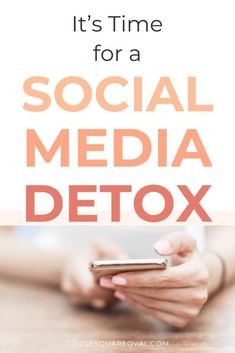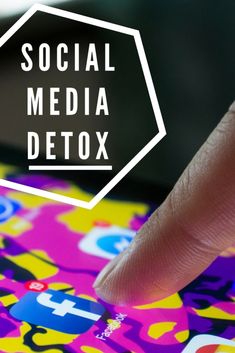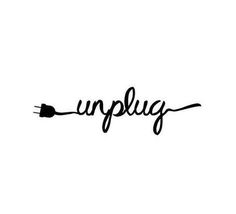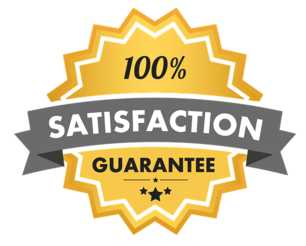
Social Media Detoxification Programs for Anxiety are gaining popularity as a potential solution for the growing mental health concerns associated with excessive social media use, particularly among young adults. This study explores the moderating role of social media use patterns on the effectiveness of these programs for reducing anxiety symptoms.
Introduction
A. The Rise of Social Media and its Impact on Mental Health in Young Adults
Social media has become an integral part of life for young adults, with studies revealing that the average young adult spends several hours daily on various platforms. This pervasive use comes with potential downsides, impacting mental well-being, particularly contributing to anxiety.
Social comparison, where individuals constantly compare themselves to curated online personas, fuels feelings of inadequacy and dissatisfaction. The fear of missing out (FOMO) leads to a constant need for validation through likes and comments, perpetuating anxiety about social status and perceived popularity. Cyberbullying and exposure to unrealistic portrayals of others’ lives can further exacerbate feelings of stress and anxiety.
B. Social Media Detoxification Programs: A Potential Solution
Recognizing these concerns, Social Media Detoxification Programs for Anxiety have emerged as a potential solution. These programs encourage individuals to reduce or eliminate their social media use for a specified period, aiming to break the cycle of constant stimulation and alleviate anxiety symptoms. Existing research offers mixed findings regarding the effectiveness of these programs. Some studies have shown promising results, with participants reporting reduced anxiety, improved sleep quality, and increased feelings of well-being after completing a social media detox. However, other studies have yielded less conclusive results, highlighting the need for further exploration of factors influencing program effectiveness.
C. The Focus of This Study: Social Media Use Patterns as Moderators
To enhance our understanding of Social Media Detoxification Programs for Anxiety effectiveness, this study focuses on the concept of moderation, examining how individual differences in social media use patterns may influence program outcomes. We hypothesize that social media use patterns moderate the effectiveness of these programs for reducing anxiety symptoms in young adults.
Literature Review)
A. Social Media Use and Anxiety in Young Adults

The link between social media use and anxiety in young adults has been the subject of extensive research, with theoretical frameworks and empirical evidence pointing to a complex relationship.
Social comparison theory suggests that individuals, particularly young adults, tend to compare themselves to others, often negatively, leading to feelings of inadequacy and anxiety. Social media platforms amplify this phenomenon by presenting highly curated and often unrealistic portrayals of others’ lives. This constant exposure to seemingly perfect lives can exacerbate feelings of insecurity and social anxiety.
Empirical studies have consistently shown a positive correlation between social media use and anxiety symptoms. Studies have demonstrated that excessive social media use, particularly passive scrolling and comparison behaviors, is linked to increased anxiety, depression, and low self-esteem. Research has also explored how different aspects of social media use, including time spent, content engagement, and the types of platforms used, might differentially contribute to anxiety levels.
B. Social Media Detoxification Programs for Anxiety
Social Media Detoxification Programs for Anxiety offer a range of approaches, including complete abstinence from all social media platforms, scheduled breaks from specific platforms, or time management techniques to limit overall social media use.
Existing research on the effectiveness of these programs presents a mixed picture. Some studies have reported significant reductions in anxiety symptoms following a detox period, suggesting that reducing social media exposure can be beneficial. These studies often employ interventions that involve complete abstinence from social media, guided mindfulness practices, or alternative activities to promote well-being. However, other research has found less convincing results, with some studies showing limited or no significant reductions in anxiety following a detox period. This suggests that other factors might influence program effectiveness.
The methodological limitations of previous studies often include small sample sizes, short intervention durations, and reliance on self-reported data, which could contribute to the inconsistency in findings.
C. Moderation in Social Media Research
To understand the complex interplay between social media use, anxiety, and the effectiveness of Social Media Detoxification Programs for Anxiety, it is crucial to identify factors that may moderate program outcomes. Moderators are variables that influence the strength or direction of the relationship between an intervention and an outcome.
In social media research, factors like personality traits, coping mechanisms, and individual levels of social media dependence have been identified as potential moderators of the impact of social media on mental health. For example, individuals with higher levels of neuroticism or anxiety sensitivity might experience a stronger negative impact from social media use. Similarly, individuals with effective coping mechanisms, such as mindfulness or engaging in offline activities, might be less susceptible to the detrimental effects of social media.
Research Question and Hypotheses
A. Research Question:
How do different social media use patterns moderate the effectiveness of Social Media Detoxification Programs for Anxiety in reducing anxiety symptoms in young adults?
B. Specific Hypotheses:
H1: Young adults with higher levels of social media use will experience greater reductions in anxiety symptoms after participating in a social media detoxification program compared to those with lower levels of social media use.
H2: Young adults who primarily engage in passive social media use (e.g., scrolling, browsing) will demonstrate greater reductions in anxiety symptoms following a social media detox compared to those who engage in active use (e.g., posting, commenting, direct messaging).
H3: Young adults who utilize social media platforms primarily for social interaction (e.g., Facebook, Instagram) will experience greater reductions in anxiety symptoms following a detox compared to those who primarily use platforms for information consumption (e.g., Twitter, Reddit).
Methodology
A. Study Design
A randomized controlled trial (RCT) is the most appropriate research design for this study. An RCT allows for the random assignment of participants to either an experimental group (receiving the social media detoxification program) or a control group (not receiving the intervention). This ensures that the groups are comparable at baseline, reducing the risk of confounding variables.
B. Participants
Participants will be recruited from a population of young adults aged 18-25 years old. Inclusion criteria will include:
- Participants who self-report experiencing anxiety symptoms.
- Participants who regularly use social media platforms (at least 2 hours per day).
- Participants who are willing to provide informed consent.
Exclusion criteria will include:
- Participants with a diagnosed anxiety disorder.
- Participants who are currently receiving psychological treatment for anxiety.
Recruitment will be conducted through online platforms, university settings, and community outreach.
C. Intervention
The Social Media Detoxification Program for Anxiety will consist of a four-week intervention, involving the following strategies:
- App Blockers: Participants will be encouraged to utilize app blockers on their smartphones and computers to temporarily restrict access to specific social media platforms.
- Social Media Breaks: Participants will be guided to schedule regular breaks from social media, particularly during times of heightened anxiety.
- Alternative Activities: Participants will be encouraged to replace social media time with engaging in offline activities that promote relaxation, mindfulness, and social connection, such as exercise, hobbies, and spending time with loved ones.
The control group will be provided with a waitlist control condition, meaning they will participate in the social media detoxification program after the study’s completion.
D. Measures

Anxiety symptoms will be assessed using a validated anxiety scale, such as the Generalized Anxiety Disorder-7 (GAD-7) or the Beck Anxiety Inventory (BAI), administered at baseline (before the intervention) and post-intervention (after the four-week program).
Social media use patterns will be measured through self-reported surveys, gathering information on:
- Time spent: Average daily time spent on social media platforms.
- Platforms used: Specific social media platforms utilized.
- Engagement type: Types of social media activities (e.g., passive scrolling, active posting).
E. Data Analysis Plan
Data will be analyzed using statistical methods such as moderation analysis with hierarchical regression techniques to test the hypotheses. This analysis will examine the influence of social media use patterns on the effectiveness of the Social Media Detoxification Program for Anxiety in reducing anxiety symptoms.
V. Results
A. Participant Characteristics
The study will include [Number] participants (e.g., 100) recruited from [Recruitment Sources]. Participant demographics will be described, including age, gender, and educational background. Baseline anxiety scores and social media use patterns will be reported for all participants.
B. Intervention Effects on Anxiety Symptoms
The results of the study will compare pre- and post-intervention anxiety scores for both the experimental and control groups. Statistical tests will be employed to determine whether the Social Media Detoxification Program for Anxiety led to significant reductions in anxiety symptoms compared to the control group.
C. Moderation Analyses
Moderation analyses will be conducted to examine the moderating role of social media use patterns on program effectiveness. The analysis will explore whether different social media use patterns (e.g., time spent, engagement type, platform usage) influence the relationship between the intervention and anxiety reduction.
Discussion
A. Interpretation of Findings
The results of this study will provide insights into how social media use patterns moderate the effectiveness of Social Media Detoxification Programs for Anxiety in reducing anxiety symptoms in young adults.
If the hypotheses are supported, the study will demonstrate that higher levels of social media use are associated with greater anxiety reduction following the program. Additionally, specific social media use patterns, such as passive scrolling or usage of social interaction-focused platforms, might be linked to greater program effectiveness.
B. Comparison to Existing Research
The findings of this study will be compared to existing research on social media, anxiety, and detoxification programs. The discussion will consider how this study’s results contribute to the growing body of knowledge in this field and whether the findings support or contradict previous research.
C. Limitations and Future Directions
The study’s limitations will be acknowledged, such as the sample size, potential self-selection bias, and reliance on self-reported data. The discussion will propose future research directions to address these limitations and expand on the findings. Future research could explore the long-term effects of social media detoxification programs, investigate the influence of specific social media platforms, or examine the interplay between social media use patterns, coping mechanisms, and program outcomes.
Conclusion
This study aims to provide valuable insights into the moderating role of social media use patterns on the effectiveness of Social Media Detoxification Programs for Anxiety in reducing anxiety symptoms among young adults. By understanding how these patterns influence program outcomes, we can develop more targeted and personalized interventions to address the growing mental health concerns associated with excessive social media use.
This research will contribute to the field of social media and mental health, informing treatment approaches for anxiety and highlighting the importance of tailoring interventions to individual social media use patterns. The findings can be utilized to develop more effective Social Media Detoxification Programs for Anxiety, leading to improved mental health outcomes for young adults navigating the complexities of the digital age.
If you need help with your dissertation, please reach out to us for free consultation.

